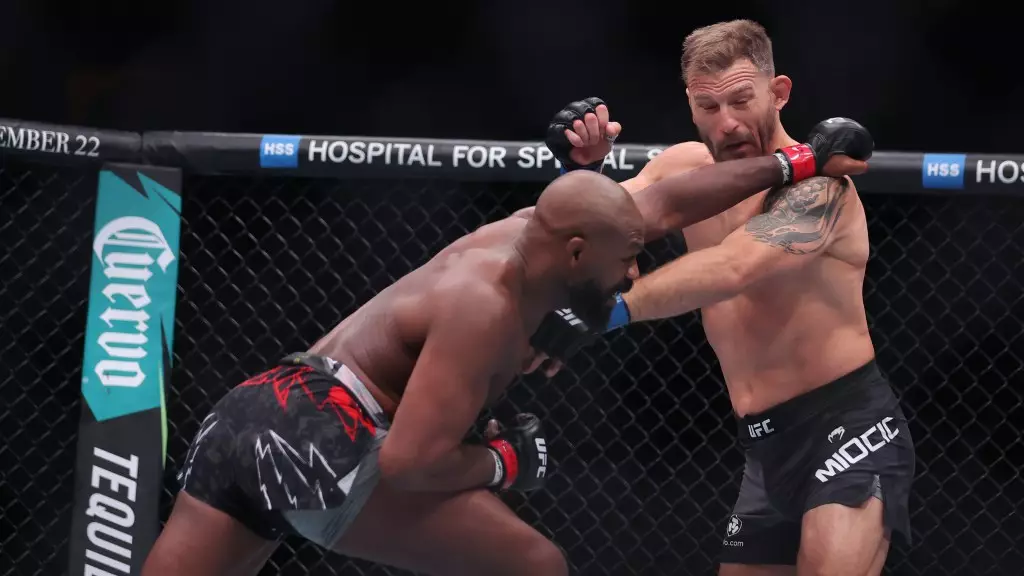Brandon Gibson, the striking coach for UFC heavyweight champion Jon Jones, is poised in his belief regarding a potential matchup against interim champion Tom Aspinall. With an impressive record of 27 wins and just one loss in mixed martial arts (MMA), Jones represents a remarkable figure in the sport. Gibson’s optimism revolves around his student’s well-honed skills and strategic acumen, which he believes will provide a decisive edge in the octagon against Aspinall, who boasts a notable record of 15 wins and 3 losses.
Despite Gibson’s confidence, Jones himself has expressed reservations about how an encounter with Aspinall might influence his legacy. This uncertainty underlines the complexities inherent in fight promotion; while performance metrics indicate that Aspinall is a formidable opponent, Jones’ perspective suggests a critical evaluation of how this fight fits within the broader narrative of his already illustrious career.
Aspinall’s ascent within the UFC has been nothing short of impressive. Known for his striking prowess and a knack for finishing fights early, Aspinall has captured the attention of fans and experts alike. His first-round TKO victory over Curtis Blaydes at UFC 304 reaffirmed his capabilities as a legitimate titleholder. However, Gibson highlights critical unknowns in Aspinall’s repertoire—primarily regarding his performance in longer, more grueling bouts.
This factor could play a pivotal role during a potential confrontation with Jones. The heavyweight champion has encountered numerous high-stakes scenarios, often demonstrating resilience and adaptability that could overwhelm an opponent like Aspinall if the fight goes into the later rounds. The dynamics of conditioning, strategy, and mental fortitude become crucial, especially as the match progresses and fatigue sets in.
When matching two fighters of such contrasting experiences, the strategies they employ become glaringly important. Gibson believes that while Aspinall may enter the fight with momentary momentum, Jones’ extensive experience in navigating complex fight scenarios will ultimately favor the champion. Every bout for Jones has included unique challenges, and he has shown a remarkable ability to evolve and adjust his game plan based on opponents.
The potential pressure Aspinall may feel to establish dominance early could also backfire. Gibson suggests that while Aspinall might aim for a quick start, that urgency could play into Jones’ hands, allowing him to remain calm and exploit openings that arise from such aggressive tactics. Indeed, taking the bout into deeper “waters” could be where Jones truly begins to impose his will, utilizing his MMA IQ, strength, and conditioning.
As anticipation builds for a possible clash between Jon Jones and Tom Aspinall, fans and analysts are left pondering the implications of this matchup. Gibson’s insights underscore the importance of analyzing not just skill sets, but also the psychological and tactical dimensions of fighting. While the younger Aspinall may present a fresh challenge, the wealth of experience and strategic prowess possessed by Jones cannot be overlooked. Should the fight materialize, it stands to be a captivating spectacle, potentially reshaping the narrative of both fighters’ legacies in the world of mixed martial arts.

